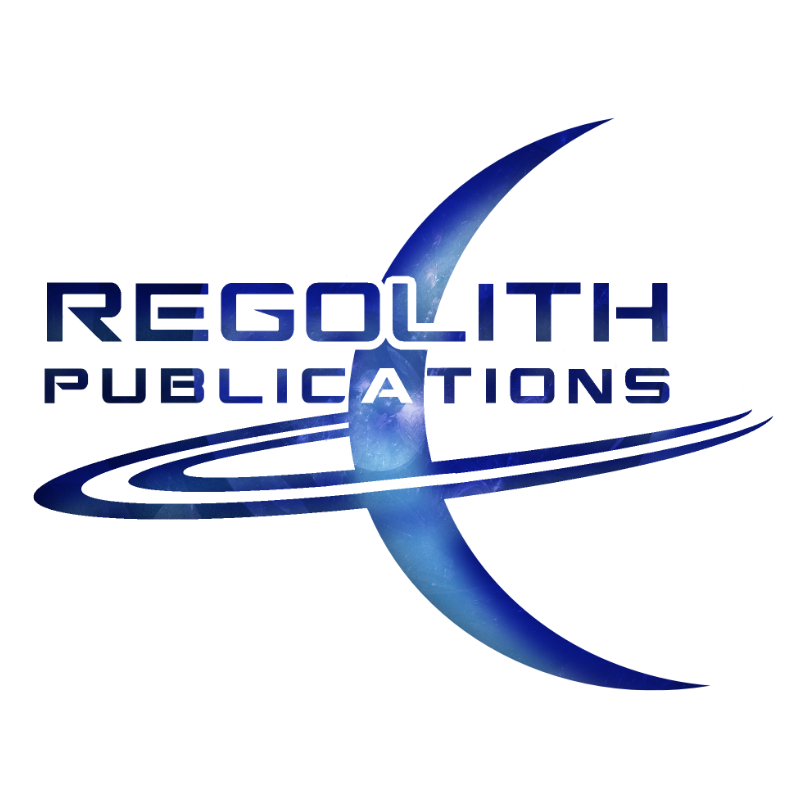|
Because sometimes I like to write poems. I once had a cup of tea
0 Comments
"I rewrote the ending so many times I lost count. Then, still not being satisfied, I DELETED it." As a writer one of the main things I am in search for is the ipsissima verba. This literally means "the perfect words."
I spend a lot of time on the first lines as well of the last lines of my novels. I rewrote the first paragraph to my debut novel Bitten: A Resurrection Thriller at least a dozen times. I rewrote the ending twice as many times just to get the feel of prosody it has along with being damn cool imagery. My new novel, Bitten: Land of the Rising Dead, was the same. The beginning was a little easier this time around because I was in the swing of things, but the ending was, pardon my French, a royal bitch. I rewrote the ending so many times I lost count. Then, still not being satisfied, I DELETED it. I started from scratch, and, still, I wasn't satisfied. After going through the story I realized that in order to find the perfect ending I either had to write another 60,000 words or else do something different. I chose different, because the next 60,000 words are coming anyway in the third novel, Bitten: Kingdom of the Living Dead. This time the Epilogue is a mini short story that is broken into four codas. Usually an epilogue is just a closing segment, but since this is book two of an ongoing series, I thought it would be fun to play with the medium and push the creative boundaries a little. So what I came up with was an extended epilogue, and what better to call it than a coda? Finally, I had found an ending I liked. But again, it wasn't quite right. So I rewrote it several times. Then I rewrote it several times more. Now I have something I'm satisfied with. It's strange that the beginning and ending of everything I write is such a challenge. But I think that's because I desperately want to hook the reader and also leave them satisfied. I think this becomes even more important when you're writing a series. As for the pages between the opening and the close, those come naturally to me. As it happens, I love to write dialog, and the pages begin to fill themselves. Basically, after creating a cast of characters and writing out character bios (and backgrounds), at a certain point, the characters begin to write themselves. Once they come to life, so to speak, I tend to let them dictate the direction of the story. Sometimes as I write them (rather freely) they will say or do something that is even unexpected to me. That's part of the fun of getting caught up in free-verse. When you're writing like that, loose and fast, and the imagination engine is spooled up to full, sometimes the subconscious kicks out things that make one's characters do or say the unexpected. I like whenever this happens, because whenever it happens, it inevitably is a pleasant surprise. More often than not it also improves my plot. Of course, this forces me to have to go back and revise my outline, because the character did something that wasn't compatible with the way I initially plotted the story, but it always works out for the better. I think it works because it adds an interesting twist to the story, which allows you to explore different avenues of character personalities, motivations, or plot points which help to really flesh out the story. Additionally, it tends to make the character much more realistic feeling. You'll be glad to know that I am currently searching for the ipsissima verba for my third book in the Bitten series. How many more zombie books will I write? I don't know. I'll keep writing them as long as I am having fun with the characters and with the world I've created. Also, I have plenty of other projects I am currently working on, including a non-fiction compendium of essays. That's a whole other style of writing, and a whole other discussion. Until then, may all you writers find the words you are looking for, and to all the rest, happy reading! 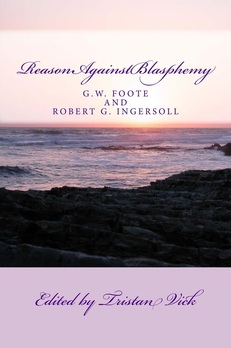 My new book anthology Reason Against Blasphemy is now available for purchase. I hope you all get a chance to track down a copy. Reason Against Blasphemy collects two important works on blasphemy by two of our greatest Freethinkers. This volume includes both G.W. Foote's memoir "Prisoner for Blasphemy" and Robert G. Ingersoll's defense at the "Trial of C.B. Reynolds" along with two related lectures by Ingersoll on "Blasphemy" and "individuality." This book is chock full of wisdom, insights into morality, philosophy, and human rights issues. I even wrote and extended Introduction about blasphemy in our current day world, of religious hypersensitivity, and why I feel that these two important works by Foote and Ingersoll are worth taking another look at. But instead of boring you all with the details, here's the introduction I wrote for the book. *** INTRODUCTION to REASON AGAINST BLASPHEMY TRISTAN VICK Isaac Newton, Galileo, Kepler, Copernicus, Thomas Paine, Mark Twain, Salman Rushdie and countless others have been branded blasphemers at one time or another. Some have been labeled such for their heretical points of view while others have been unjustly attacked and persecuted for what is essentially a ‘victimless crime’. Literary virtuoso Salman Rushdie, whom I had the pleasure of sitting down with back in 2005, is quite familiar with the intolerant aspects of religion. Perhaps the most famous blasphemy case in living memory, Rushdie was accused of blasphemous slander for his irreligious work The Satanic Verses, and was the unhappy recipient of a fatwā issued by Ayatollah Ruhollah Khomeini in 1989, the Supreme Leader of Iran at the time. Even though Salman Rushdie had the bad fortune to be sentenced to death for nothing more than a difference of opinion, despite numerous attempts made on his life, he is alive in well today. However, his Japanese editor and book publisher, Hitoshi Igarashi, who lived in far off Tokyo, Japan, was gruesomely stabbed to death in 1991 by religious radicals seeking revenge on anyone who aided Rushdie in publishing his works. This appalling act of murder for nothing more than perceived “libel” in the name of blasphemy is a grave reminder that the undeniable fact of the matter is that blasphemy is a cruel and barbaric practice which has no place in the civilized world. Still, blasphemy is a hot topic issue in our ever growing multicultural world. Many religious nations are now seeking to enact “Defamation of Religion” laws which would seek to make criticism of religion, all religions, a punishable offence. Perhaps this desire to shield religion from opposing views arises, in part, due to the vanishing geographical boundaries which once separated peoples, cultures, and customs. Strong borders also allowed for the segregation of tribes, villages, and towns where the belief systems, rarely, if ever, came into contact with one another. In today’s information saturated world, we have technology such as smart phones, the Internet, and global news media which provide us with easy access to a sea of ever expanding knowledge. This has subsequently caused the regional boundaries to become blurred, and in many cases, it has forced countries to adapt to the rapid influx of new ideas and beliefs. Many of which, no doubt, have challenged the firmly established worldviews of the old world. As the cross-cultural assimilation continues, one comes to realize it is near impossible to shelter oneself from the unlimited sea of information and ideas that are washing over us in waves. Both old and new worldviews have begun to rub up together, and in some cases, have crashed head on, like the sea frothing at the rocky shores of some distant seaside bluff. As such, this cross-cultural friction has led to one of two consequences. It has led to either an increase in the breakdown of cultural norms, where the old worldview is acclimated into the new (and vise versa), or else a defensive recoil occurs in which the old worldview tries to preserve itself by erecting even stricter laws and regulations to try and limit the cross-cultural influence. Whereas the former breeds liberalism, the latter breeds conservatism, and it is in the conservative element that we find a weariness of the outside world and a preoccupation with “defamation” and “libel” regarding beliefs which are considered “sacred” or “divine.” Blasphemy has been used (and continues to be used) as a tool to maintain the religious opinions against prevailing opposition and change. Making blasphemy a punishable offense goes one step further by allowing persecutors to actively seek to quell religious dissenters, apostates, and impede the growth of irreligious secularism and the heretical attitudes which are so easily fostered therein. It seems that wherever blasphemy arises as an issue of contention, we can be sure that we are not dealing so much with an issue of finding any real “offense” at criticism, but rather, we are witnessing resistance to change. Wherever religion outrages reason to the point of due criticism, there has always been the religious self-reflexive defense to invoke blasphemy as a means to quell independent thinking and the freedom of speech, which stands in direct opposition to the stronghold of unimpeachable orthodoxy. But like Thomas Jefferson imbued, criticism is necessary if we are to properly evaluate the substance and worth of ideas, and therefore no idea is beyond reproach. Needless to say, those who have lived sheltered lives in the safety zones of religious communities with closed off borders are not well equipped to handle derisive criticism coming at them from all sides. We cannot be too quick to judge the person of pious faith when their first reaction is toward anger and outrage when the foundations of their piety are taken to with sledge hammers of unyielding reproach. In many cases, they simply have not had enough experience with the free exchange of ideas to develop the thick skin required to be able to let the unimportant criticisms slide. Unable to respond to their critics’ barbed comments and cutting condemnation makes any mutual understanding difficult to come by. Subsequently, feeling criticism of their faith to be akin to abuse, the demand to shut down the discourse out of fear of further abuse arises, and blasphemy laws and defamation of religion laws are thus born out of such frustration. Resentment toward being on the receiving end of the criticism, indistinguishable from abuse in their mind, leads to outrage, and this goes a long way to explain why those who have a personal investment in preserving their religious beliefs and sheltering them from criticism often do not seem capable of reasoning dispassionately and leaving their emotions out of it. Granted, modern blasphemy laws are a little more complicated than simply a desire to control other’s opinions and the outburst of infantile temper tantrums,1 but as far as the notion of blasphemy itself goes, namely the desire to safeguard what is deemed sacred as an inviolable truth, one cannot help find a morsel of truth in Oscar Wilde’s comment that, “Truth, in matters of religion, is simply the opinion that has survived.” Religious opinions have survived, in part, by unjustly persecuting those who have opposed religion, and consequently, would be deemed blasphemers. Some contend that erecting universal blasphemy laws will seek to ensure greater tolerance among differing viewpoints, but if recent events are any indicator, the opposite seems to be true. Instead of greater tolerance, with every blasphemy law comes more outrage, violence, and narrow mindedness. As recently as 2009, the Republic of Ireland introduced a new blasphemy law which would seek to protect religions against defamation and libel. But as is common with such laws, it has only lead to more unease, as it has set a president by which other religious run states call for the persecution of religious dissidents, i.e. apostates and freethinkers. One only look at the events in Pakistan and Bangladesh where Internet bloggers are being murdered and imprisoned for supposed “crimes” of blasphemy. If the religious want greater respect, then they must earn it by respecting the rights of others first and foremost. Indeed, erecting blasphemy laws is not a valid method for spreading greater understanding and tolerance. One does not gain tolerance by telling people how to think and what to say. We can only have true tolerance and equality by allowing for the rights and opinions of others to be expressed equally, regardless of whether or not such opinions offend. Caving into the demands of those who would make blasphemy a punishable offense is also the call to give up one’s freedom of speech perchance their opinions might offend. It is no surprise then that the concept of blasphemy is in direct opposition to the freedom of speech. Islamic apologists have adopted the term “blasphemy” to describe any and all criticism of Islam. This has proved problematic. In an op-ed article in the National Post, Faisal Saeed al-Mutar and Jackson Doughart point out the incompatibility of the concept of blasphemy with the concept of the freedom of speech, when they relate: “The earnest employment of the term blasphemy, and its advancement by Islam’s apologists as a tenable concept, is a clear enemy of open and secular society. Free expression, which constitutes the bedrock of the West’s process of deliberating controversial questions of value, cannot be balanced or reconciled with the idea of sacred and unchallengeable beliefs, since it contradicts the first principle of free speech: that even the most profane dissent must be protected.” Blasphemy, as it is used today by most religious apologists, is nothing more than the tool of fear-mongers who wish to silence their opponents and anyone that does not share their particular brand of faith. Their message is clear: think twice before questioning our faith—our religion—because if you should be found in contempt, your punishment will be severe. It is the call for silence and unquestioning compliance to the will of religious authoritarians. It is to shackle your lips and censor your mind. This very line of reasoning prompted the late great journalist and intellectual author Christopher Hitchens to assert: “I refuse to be told what to think or how, let alone what to say or write by anybody, but most certainly not by people who claim the authority of fabricated works of primeval myth and fiction and want me to believe these are divine. That I won’t have.” Although he was known for his controversial views on religion, Hitchens’ sentiment was held with equal conviction by the great Freethinkers of the late 19th and early 20th century as well. Defying the imposition of theocrats abusing the rights of man was one of the main goals of the Freethought movement. The Great Agnostic Robert G. Ingersoll outlined further the notion behind the necessity to resist those who would seek to control or oppress the opinions of man, stating: “Notwithstanding the fact that infidels in all ages have battled for the rights of man, and in have at all times been the fearless advocates of liberty and justice, we are constantly charged by the Church with tearing down without building again. The Church should by this time know that it is utterly impossible to rob men of their opinions. The history of religious persecution fully established the fact that the mind necessarily resists and defies every attempt to control it by violence.” Throughout the ages the lesson has always been the same, if you do not agree with religion, you are to bite your tongue. If religion disagrees with you, it will cut off your tongue and condemn you as an infidel and a blasphemer. Likewise, Robert G. Ingersoll observed the same danger with regard to blasphemy, when he warned, “Blasphemy is a padlock which hypocrisy tries to put on the lips of all honest men.” Needless to say, in a world without religion there would be no such thing as blasphemy. In fact, the very notion of offending religious sensibilities can only be erected under the umbrella of religious faith. Outside of religion, however, blasphemy is by and large a meaningless concept. This is why I feel publishing this volume is of timely importance. We must turn now toward the timeworn lessons of the Golden Age of Freethought. The war for Freethought has already been waged and won, but there are still religious organizations which would seek to bring our basic freedoms and liberties back under their control. Echoing the sentiment of Christopher Hitchens, I hope you’ll join me when I say, this we will not have. *** Perhaps now, more than ever, we must reflect on the implications of imposing blasphemy laws and stripping men and women of their opinions. This is why I have found it necessary to reproduce the blasphemy cases of G.W. Foote and C.B. Reynolds as defended by Robert G. Ingersoll. Each case, separated by only a year, represents great victories in the arena of free speech and the freedom of expression. G.W. Foote was convicted and sentenced to a year in prison for the crime of “libel against religion” and I think the reader will find that his punishment was unjust. In fact, so did most civilized people of his day. Annie Besant, a friend of Foote’s, who three years prior faced similar charges of blasphemy for her Freethought work alongside Charles Bradlaugh, went on to write that “A struggle has begun, which promises to be one of the fiercest that this century has seen, between the bigots and persecutors on the one hand and the supporters of free speech on the other.” She was not wrong. Foote was the last person in England to ever serve a prison sentence for the crime of blasphemy, in part, for the outrage his sentence invoked in the minds of the English people. The law, even in 1886, was already considered archaic and stood in opposition to the freedom of the press. The fact that Foote’s prosecutor, Mr. Justice North, was a staunch Catholic and nursed an undeniable bias, meant that Foote had his work cut out for him. Needless to say, Justice North, who embodies the parody of a comic book villain, was incapable of hearing reason. As a consequence, Foote was tried and convicted for the crimes of blasphemy. After the trial, Justice North had to flee through a secret corridor out the back of the courthouse to escape the riots sparked by the public outrage of Foote’s sentencing. Sticking to the shadows and sneaking out the back of the courthouse like a common villain, Justice North proved that he was as much as a coward as he was contemptible. Able to sentence a free man to prison for voicing his honest opinion, but unable to look anyone in the eyes and stand by his judgment, it is to Foote’s credit that upon receiving his sentence from Mr. Justice North, he remained courteous and said, “My Lord, I thank you; it is worthy of your creed.” Foote’s memoir of the trial, including an account of the trial proceedings and his subsequent prison internment, Prisoner for Blasphemy is required reading for anyone interested in the history of blasphemy laws and how this affects our rights as Freethinkers and as people. In 2008, under Prime Minister Gordon Brown, England abolished its blasphemy laws. Likewise, in March, 2011, the UN Human Rights Council shifted from protecting beliefs (both religious and political) to the protection of believers (the individual) when amending the February 1989 resolution. This minor emendation takes us in the right direction of protecting people’s rights while limiting further the oppressive reach of religious theocrats by stripping them of their most favored weapon, blasphemy. I think Foote would have been disappointed that it took so long, but wherever and whenever reason wins out over age old superstition, we can honestly say, better late than never. After Foote was released from prison in 1887, he went back to publishing the Freethinker. In 1890 Foote succeeded Bradlaugh as president of the National Secular Society, a position he’d proudly maintain for twenty-five years. The Freethinker is still published today. It is the longest running Freethought publication in existence. At nearly the same time Foote was being released from prison, across the Atlantic, America was facing a similar crisis. C.B. Reynolds was a Freethinker who was known for passing out Freethought pamphlets revealing the contradictions and absurdities of the varieties of Christian religion. But for Puritan founded America, this was too much to bare, and Mr. Reynolds soon found himself faced with accusations of blasphemy, and a court hearing to determine his guilt. Lucky for Reynolds it was the Golden Age of Freethought. Enter war hero Col. Robert G. Ingersoll. Civil War veteran, education reformer, and Freethought proponent Robert G. Ingersoll came to C.B. Reynolds aid, not because of any affiliation with Reynolds, but because the cause was just. After all, in a free country with a constitution guaranteeing the freedom of speech, no man should be punished for voicing his opinion freely. Robert G. Ingersoll’s defense makes it quite clear why blasphemy is an erroneous and outmoded concept. With his closing defense speech, Ingersoll forever did away with the notion that blasphemy could ever be tried under American law and forever insured that the freedom of speech was indeed more sacred than any religious ideal. If Ingersoll’s brilliant defense of C.B. Reynolds and the victory for freedom of speech wasn’t enough, I have included Ingersoll’s lectures on “Blasphemy” and “Individuality,” as they relate to the topic, and show us a better alternative to the outmoded blasphemy laws of old. *** As with my prior anthology Seasons of Freethought, I have updated the language and terminology for modern readership. It is never an easy choice to do so, as I feel that in some small way it betrays the beauty of the language as originally written. But language is ever changing, like the ebb and flow of the tides, and there comes a time when the old verses are too dissimilar from our current form of the language that it becomes distracting and, occasionally, causes minor difficulties in understanding. As my desire in reproducing these volumes is to present them to a new generation of readers, I have had little choice but to update the language. I think readers will find that the updated lexicon, along with modern grammatical forms, and with the utilization of the standardized English which is currently in vogue, makes the reading a much more smooth and enjoyable experience. Archaic spellings, such as connexion for connection, have been updated according to the Oxford Dictionary of English corpus. Un– prefixes have been change to im– prefixes wherever necessary. Two word forms, such as some day and some where, etc., have been contracted to the single word forms of someday and somewhere. Unique or archaic spellings have been left intact where there is no acceptable alternative. Where a modern alternative to a word is found acceptable, the modern word form has been selected over the alternative, e.g. victress has been replaced by victrix and gaol has been replaced by jail. Most of the changes are merely cosmetic and do not change the meaning or content in any significant way. The choice to use modern American spellings over the old British or old American spellings is twofold. First, it allows modern readers to read with ease and enjoy the content without being confused as to the meaning of old spellings or terminology which might disrupt reading flow. Secondly, the simplified American spellings cut down page count significantly, making anthologies and collections, such as the one you hold in your hands now, cheaper to produce and thus less costly. Beyond these rather mundane technical enhancements, I have tried to stay as true to the source material as possible while updating it for a modern readership. Most assuredly, I am pleased to present a new generation of Freethinkers, Skeptics, and Atheists with an accessible and affordable collection of works by two of the greatest defenders of Freethought and free speech who ever lived. 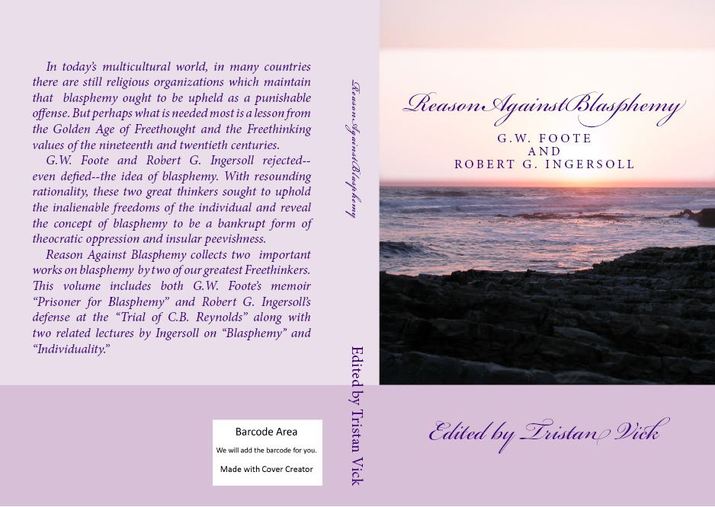 Publishing a book the cheap and easy way means that, as a self-publisher, I must do everything myself. Sometimes it's easier said than done. Don't get me wrong, I love doing the work. Learning about every step of book production and design hands-on, by doing, excites the nerdy bibliophile in me. But sometimes it can be a daunting task. Which is why I have chosen to publish a few anthologies of public domain works I have enjoyed in the past. My goal with these publications has been twofold. First I wanted to reproduce these books that are no longer in publication, because I really feel they ought to be, as they are that good. Secondly, I wanted, or rather: needed, the practice. Since I am only publishing books that interest me at the moment, I can learn through trial and error. If others happen to like the sorts of works I am publishing, then I may continue to bring rare and out of print works back into publication through my imprint Hungry Word Publications. As for the cover to my new anthology Reason Against Blasphemy I had to make a few changes since I am using CreateSpace's free cover creator. It lets you choose from about 20 customizable templates, but the customization only goes so far. It's the poor man's way of doing the cover design. But I chose to try it out with my first anthology Seasons of Freethought and liked the end result. So I decided to try it again. This time around however, I found the templates to be a little bit too restrictive. So it looks like if I keep self-publishing in the future, I'll be spending some time learning my photo program which I barely know how to use. Reason Against Blasphemy will be out in late March (tentatively scheduled for a March 20th release). Please look for it on Amazon.com! 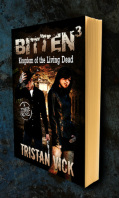 The novelist Rhiannon Frater recently asked her readers on her blog whether the whole zombie thing was done for due to an over-saturation of zombie fiction, or whether people were still looking for new takes and twists on an tired out genre? It seemed that there was an overwhelming and positive response of fans who are still looking for the diamonds in the rough. But I must admit, there is a lot of bad, second rate, barely readable stuff out there. Of the novels I've read I must say the cream of the crop are to be found in Mark Tufo's Zombie Fallout series and Jonathan Maberry's zombie books. I hope my own seires will be as well recieved. Meanwhile, other honorable mentions include Steven Knight's The Rising Horde, although a little too heavy on the action, his character development is solid. I tend to gravitate toward good character pieces and steer clear of gun-em-down and shoot-em-up nonstop violence for violence sake type books. Sadly, the latter rather than the former dominates the zombie market at the moment. There are literally thousands of zombies books out there now, the majority of them about killing zombies. To that regard, yes, the genre is certainly a worn out one. But there are some genuinely fun zombie stories too. Tonia Brown's Bad Ass Zombie Road Trip is one example of a diamond in the rough. Rhiannon Frater's Last Bastion of the Living is good stuff. Then there are the LZR books, the Alice in Deadland series, the Contagion series, and so on and so forth. Almost all of these books have come out in the last year or two, as did my own Resurrection Virus Saga, the Bitten books, which falls nicely into this new wave of zombie fiction and joins the horde. But if you're planning on writing a zombie novel, since it's all the rage, here's my challenge to you. Try writing it without naming the types of guns or caliber of weapon, unless the story absolutely calls for it. If you don't think it can be done, then chances are, you have no story and probably should spend some more time brainstorming. The reason I suggest this is because it was some of the best advice I ever got. It pushed me to focus not on the action of the scenes, or the technical jargon, but to go back and write good character stories. I can't hammer it home enough, because it is really what is at the heart of every great piece of fiction ever written. The best stories are always the ones that revolve around the characters. Where the character's desires, choices, and actions drive the plot. If the plot doesn't have much in the way of character progression, interaction, revelation, then it's probably a rather thin plot, and no amount of twists, original ideas, or correct technical jargon will save a book with no character depth. But as long as there are character driven stories, then I think the zombie genre will breathe some life yet. Whether you are writing fiction or non-fiction, research is of key importance.
I was recently told that one of the reason today's glut of zombie fiction isn't very good is because the writers do not research their subject matter. The critic informed, "Google isn't good enough." Well, yes and no. Google is a good place to start researching, but I wouldn't end it there. I agree, however, that many works of fiction aren't that well researched. Over the past decade my written work has mostly been non-fiction essays ranging from science, to philosophy, and religion. I have written professionally for movie review sites and guest articles on philosophy blogs. It was only last year that I branched out into fiction with my debut novel Bitten: A Resurrection Thriller. But the thing I took away with me from my non-fiction writing experience was the need to do thorough research. And by thorough, I don't mean exhaustive, I mean solid. Let me explain. I was recently told by a writer that if you are writing a story with guns, you need to go hands on, and go train with real live guns. Only then will you be able to write about guns well. I am inclined to disagree. I have found that buying a manual on how guns work suffices for everything you need to know about them in terms of description. I don't actually think you need to fire a gun to write about how a gun fires, in the same way I don't think you need to experience getting shot to write about a character being shot. But I do think one should try to get the terminology right. That said, a good story isn't about the props, it's not about the guns, it's about the characters. Always. If there is one thing as a writer I would like to drill into aspiring writer's heads... it's this... characters are what drive the story. If you don't have engaging characters, sorry to say, readers won't find any worthy reason to keep reading your works. As for technical details, there will always be certain readers who will nitpick and who'll put an otherwise excellent book down just because a person confused the type of ammunition a shotgun fires for the specific scene in the story. Was it 'shot' or was it a 'slug'? Oh my God! The writer got it wrong. So now I hate this book. Well, I guess if the characters aren't engaging enough then, yeah, things like that will stand out like a sore thumb. Personally, minor technical errors aren't that big of a deal for me. As long as there is decent character development, and the story is solid, then I find, at least in my experience, readers tend to be more or less forgiving. All this is just to say, you still ought to do your research. Research is important because it could help give your story that realism and believability needed that puts it a cut above the rest, and those pickier readers will naturally be happier when you get your terms right. One of my test readers, who is well trained in firearms, once gave me some excellent advice. He said, "Take out any and all references to the type of gun being fired unless it serves a specific plot point." In other words, don't mention the type of gun it is. Because, simply put, the name, caliber, or make of the gun isn't what's driving the story. Basically, the advice is, don't include the whole of your research in the actual novel. Getting bogged down in technical description for an entire page will kill the novel dead. Charles Dickens was the only one who ever got away with it, and that's because he could paint with words. If that's not your main skill, then I would suggest maybe not using to much technical jargon. Just have it on hand so that you might utilize it when absolutely needed so that your writing is solid. Which brings me to another kind of research. Being technically accurate is just one type of research. Knowing how to write good dialog, interweave intricate plot lines, and create intriguing story arcs is another kind of research entirely. And this research can only be done by, if you haven't guessed, reading good books. Writers who don't read rarely ever write well. Have you ever wondered why scientists make the best science fiction writers? Because they have already done all their research. The rest boils down to structuring a solid plot with well written characters and character motivations. Anyone can learn to write, and learn to write well, as writing is a skill. But the real magic lies in how well you apply what you have learned once you've done your research. And I find that certain people can use all the tools of the trade, while others, get good at certain things and try to focus on the good. In the end, it's best to do what you're good at, but don't forget to practice the other areas as well, and always remember to do your research! 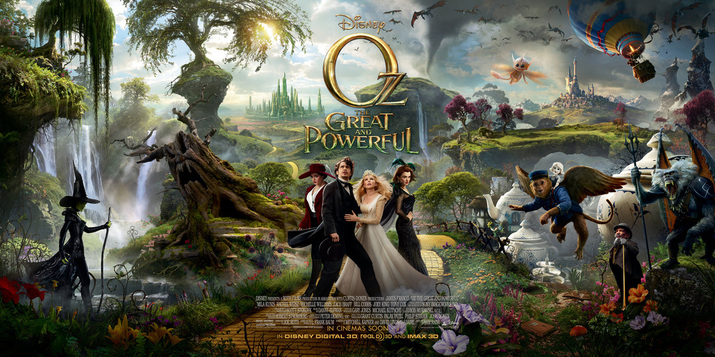 This is the second live action produced by the new management over at Disney since last years John Carter of Mars. Whereas as JCM had no real advertising or studio support to speak of, lending to poor box office results for a genuinely good movie, Oz the Great and Powerful had roughly a $100 advertising campaign which helped boost it to the number one spot domestically and internationally this past weekend, where it garnered a whopping $150 million. But I am not going to bore you with box office stats. What I am going to talk about is the film Oz the Great and Powerful, which I watched with my family over the weekend. Now, the film is aimed at family audiences, but much like Tim Burton's Alice in Wonderland (2010) this new Oz film has a rather dark edge to it. Sam Raimi didn't skimp on the fright scenes, which he is a master of, and they are executed with precision in this film to startling results. That said, it may not be well suited for younger audiences. My daughter, who is only three, and who is perfectly fine watching every season of Doctor Who with her dad, and whose favorite Doctor Who characters are the monstrous Cybermen and the frightening Silence, no less, told me that OzGP was too scary for her tastes. (Yes, and three is a bit young for such movies, and I honestly thought it would be fine with a movie based on a children's classic. Not quite the case. So those with toddlers and young children may want to preview the film first.) Now unlike your standard movie reviews I'm gonna launch my criticisms first. Mainly because, I don't have very many. There is a lot to praise aobut OzGP and very little to nit pick about. My main criticism of this film is the near absolute lack of any real humor to speak of. That isn't to say it is entirely without humor. Just nearly so. The humor that is here doesn't translate well across the board. I watched the film in Japan, and the Japanese audience did not get any of the jokes. That's because a lot of the jokes involved do not translate well into other languages, which is why situational humor always goes over better in foreign markets, not to mention appeals more to younger audiences. OzGP has surprisingly little in the way of physical or situational humor. In fact, there isn't any. It's mainly implied humor revolving around the character Oz, played by James Franco, and his constant womanizing. Even with cute characters like an adorable flying monkey and china doll girl, there is only one memorable comedic scene in the entire movie. One. You get to laugh once. That's it. This lead my wife and daughter to feel the movie was wholly too serious, and for a family feature involving a remake based off a musical (in which it takes all of its visual cues) it seemed rather to the point. With a dash more humor the film would have been more accessible to foreign audiences and children, I think. So the seriousness of the film, seems to me, to have hindered rather than helped its overall appeal. Which brings me to my next gripe. Throughout the film Oz continually reminds us that he's not a good man. All the other characters tell him that he clearly is, even if he doesn't see it. Now, it plays well into the overall story, but what bothered me was how many times it was brought up. It wasn't once. Or twice. Or three or four times. But constantly throughout the whole film. It felt as if, just when you were beginning to get into the character stories, they would pause everything ... just to remind you ... yet again ... that Oz wasn't all that great of a guy, but secretly, he really was. It seemed to be talking down to the adult audience that this movie was clearly aimed at. Those are two very damning criticisms in my eyes, but the real question is, does the film make up for them? Without any hesitation I can honestly say, "Yes." What OzGP fails at it makes up for in spades of fun. This is probably the most amazing 3D film produced to date, and it is well worth the extra cost of the 3D ticket. If you don't like 3D films, don't worry, the 2D is a brilliantly rendered, beautifully executed, land of Oz. The thing I watched for were the Kansas and Oz parallels, and there were many. Some of them obvious, and some subtle, but they all worked. For me personally, the most important thing was whether or not the film would have the adventurous quality of the original, and whether or not meaningful friendships would be forged. In both cases, I am happy to report, the Raimi and his team of talented filmmakers succeeded. From start to finish I felt the film kept a steady pace, even with Oz breaking into several speeches throughout, luckily the speeches were rather short. The hero's journey always seemed to be the main focus of the plot. First in Oz's journey from Kanas to the wonderful world of Oz, and then the journey to find the wicked witch and destroy her wand, and then the journey to save the people of Oz, and finally the journey of the discovery of the self. All of these journeys tie together to make the Oz character well rounded. A far more believable character than the Alice in Wonderland remake in which Alice seemed like a drab and boring little one dimensional girl. I also like how this story explains how the Great and Powerful Wizard of Oz is formed. Danny Elfman's score to OzGP is his best to date, at least in my opinion. It has flourishes hinting at the original Wizard of Oz musical but remains entirely its own. The score is epic and rolling and, to its benefit, is easy on the ears (unlike some of Elfman's previous scores). It's the type of score where you could buy the album and enjoy listening to it. Finally, the best of the film, were the witches. I have to say, I really liked every scene where there was a good witch or a bad witch. The actresses were engaging, and I have to say, Mila Kunis makes the sexiest witch I've ever seen. I also get the sense from her performance that she had a blast playing her character too. My Recap The Bad: Lacks in the humor department. Too scary for young kids. The Good: Best 3D film to date Good story and fun characters My Rating A-  Izumo-taisha, the Japanese shrine in Shimane Prefecture which is dedicated to happy relationships, blossoming romance, and marriage is possibly the oldest shrine in Japan. In fact, nobody actually knows how old it is. There are records from the Heian period circa 950 that states the shrine was already fully erect and was the highest man-made structure in Japan at the time, rising 48 meters. How long it had already been there, however, remains a mystery. The iconic rope, called a shimenawa, which hangs above the main hall (rebuilt in 1981) weighs a whopping 5 tons! That's over 11,023 lbs.! I went to Izumo-taisha with my lovely wife back in 2006. She was my fiance at the time, so maybe there is some truth to the whole 'good luck / happy marriage' thing regarding Izumo-taisha. If you ever visit Japan, it's a wonderful place to visit. 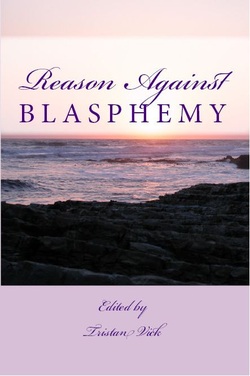 Reason Against Blasphemy is my next pet project. Like I did with Seasons of Freethought, RAB will collect two main works about blasphemy by two of the greatest Freethinkers who ever lived, the English born G.W. Foote and the American Robert G. Ingersoll. Once again, I am handling all of the publishing chores, from cover design to formatting. Seasons of Freethought was extremely fun to produce, and I always enjoy bringing rare gems of literary works back into publication. The collection should be out sometime at the end of April or the first of May. Stay tuned for future updates! 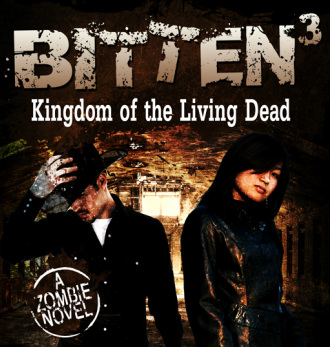 Needless to say my docket is full. Currently, I am focusing most of my attention on the Bitten revision and Bitten 3. The revision is a full rewrite of the first novel which will be out in April (2013). The reason I have chosen to do a full rewrite was simply because I was never really satisfied with the end product. Now I have the ability to pull a "George Lucas" and go back and fix the things I didn't like the first time around. It's the same book, and the same story, but just much better edited, and I have thrown in new content. The Kindle only short story I released last year, Bitten: After Dark, is now officially included in the revision. So those who wanted it to be put back into the story will be happy to discover it comfortable added back into the book. Between the Bitten revision and Bitten 3 I intend to edit two more non-fiction anthologies. One is a project I have been working on for two years, collecting stories of religious apostates, and sharing their personal de-conversion stories. The book will be titled Beyond an Absence of Faith, and it chronicles the journey's of twelve people who lost their faith. In addition to this, I will be putting together an anthology on blasphemy. It is a combination of two works, G.W. Foote's prison memoir Prisoner for Blasphemy and Robert G. Ingersoll's legal defense of the Trial of C.B. Reynolds for Blasphemy. In addition to these two works on blasphemy and freedom of speech, I will write an extended introduction to the collection detailing a brief overview regarding the history of blasphemy along with a short introduction to each book. After these works are complete I am going to write a stand alone steam punk novel in which I do what I love to do most and mash genres together. Also, I am going to make my protagonist the descendant of Doctor Frankenstein, or Frankenstein the III, and set him in a steam punk universe. But with a few twists. Unlike his father and grandfather before him, this young man of twenty-seven chooses a different profession, he chooses to be a private detective. Yes, it will be a Holmesian styled Frankenstein story set in a steam punk world. But, again, with a few twists. There will be a beautiful girl. There will be some time travel. And all the gimmicky things which will be sure to ruin a novel--if not handled with the utmost of care. Why write a steam punk novel? Well, frankly, because I don't know anything about the genre. So I thought ... what better to challenge myself than write in a genre I don't know anything about? So I am currently reading some steam punk novels as my research to prepare for my story. But like I did with Bitten, my research will be limited to just a few novels. When I researched the zombie genre, I only read four zombie novels and watched half a dozen films. Just enough to get the vernacular down, but not enough to allow other writer's voices to influence me too much. I don't want to be a copycat writer, but I do want to be authentic. So I'm doing the same for the whole steam punk genre. I am only reading three steam punk novels, and watching a few B movies, but I think it should suffice to adequately get all the terminology and tone down. I think the thing about the steam punk genre is that the stories tend to lean toward fantasy, more like Star Wars, The Iron Giant, Stardust, and Howel's Moving Castle than they do hard sci-fi, even as they are a sub-genre of science fiction. In fact, I would go as far to say that steam punk has more in common with The Wizard of Oz and Alice's Adventures in Wonderland than they do most science-fiction. But I digress. After this short romp through the cog and gear infested world of steam punk novels, I will begin work on a sprawling space opera I have had in the back of my mind for about two years now. I've plotted the first arc and have written detailed descriptions of the characters, planets, and tech. It's my most thought out series, and it promises to be something original, but I wanted to hone my skills before I tackled such a big project. So that's what I have in store for readers over the next couple of years, if all goes according to plan. But I have learned, over the years, that things rarely ever go according to plan. So I try to remain flexible. |
Tristan VickBy day I am an educator and a cultural ambassador. By night I entertain notions of being a literary master. In reality I am just a family man and ordinary guy who works hard and loves writing just about as much as I love my family. Just about. AVAILABLE NOWNEWSLETTER
|


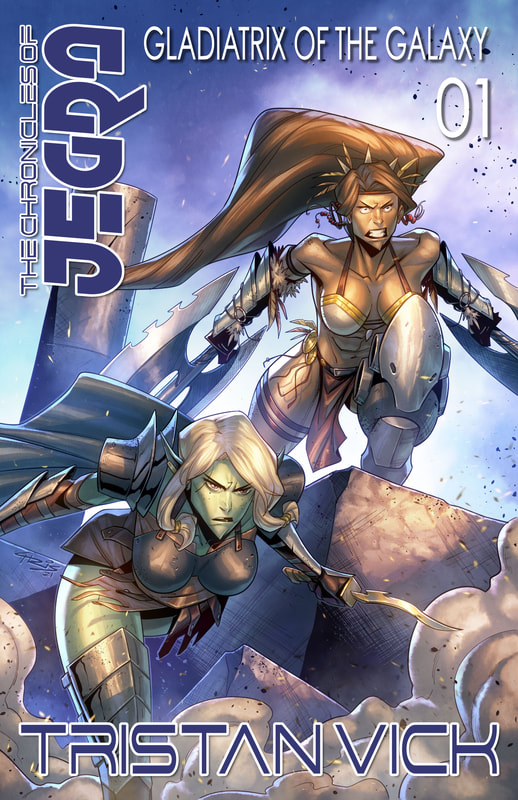
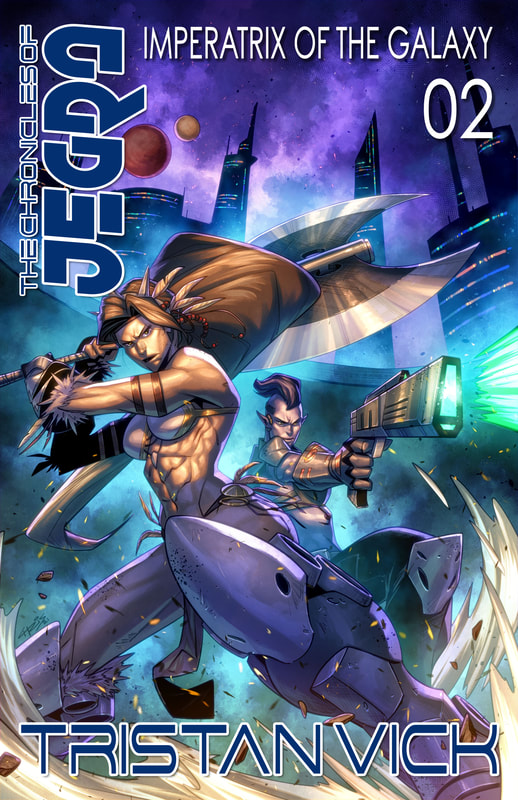
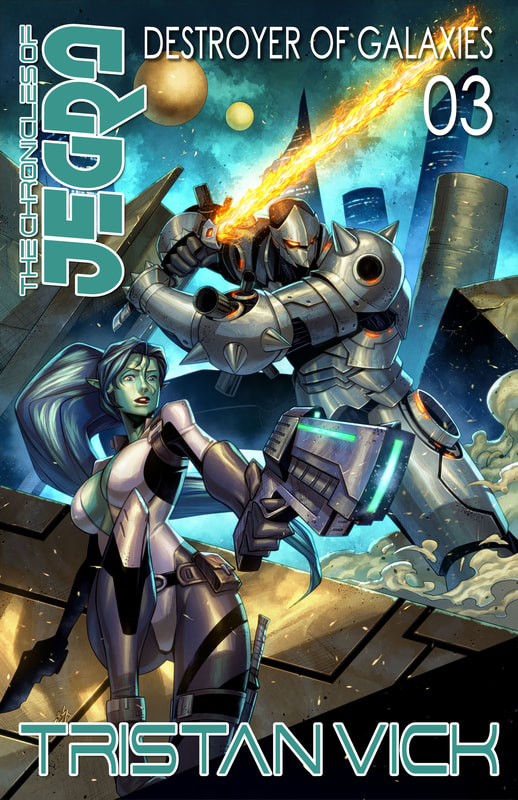
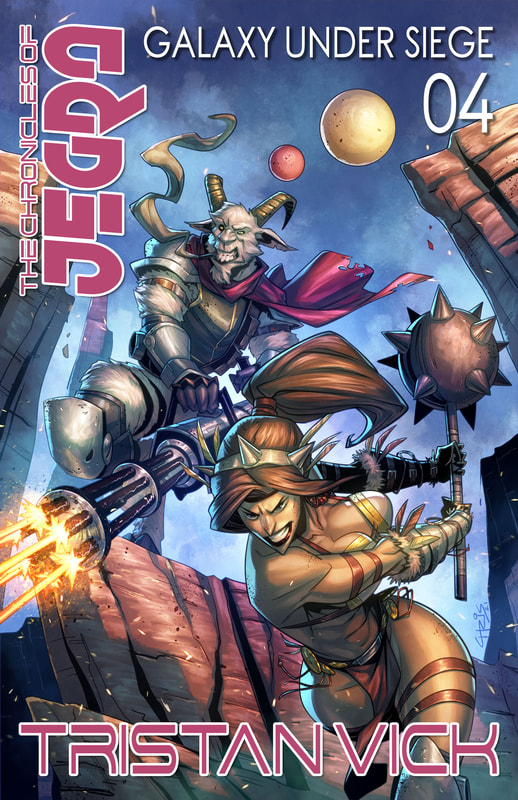
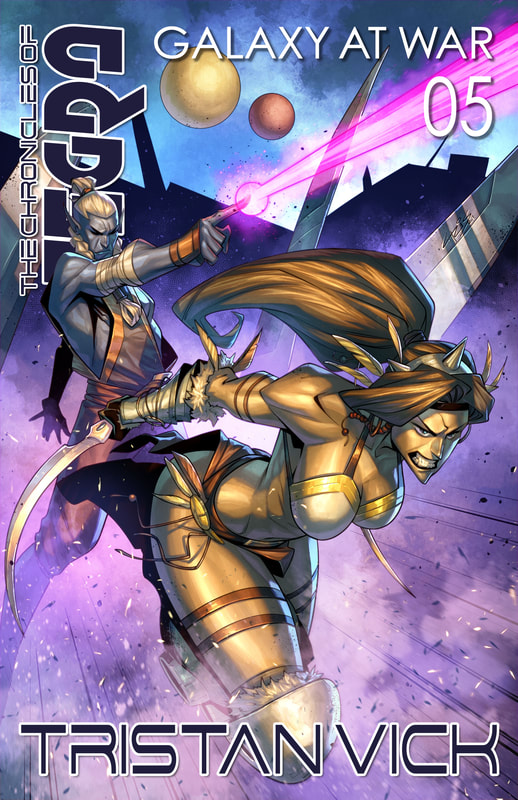
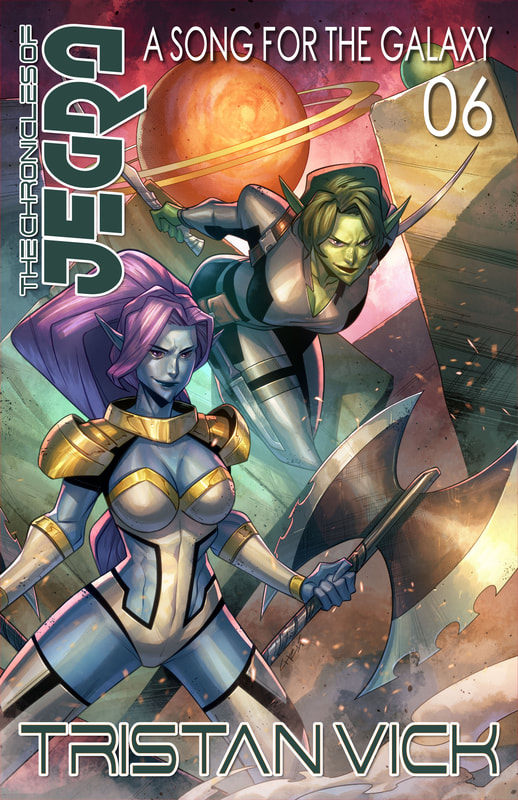
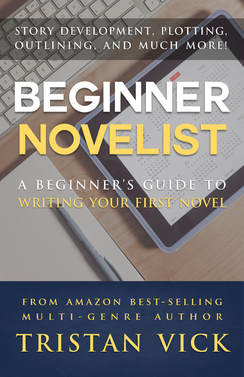
 RSS Feed
RSS Feed
